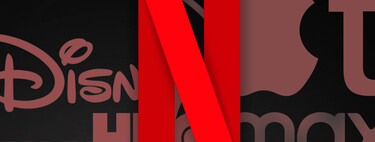In recent years, Apple TV+ has shown a strong commitment to the science fiction genre, featuring series like Foundation and Silo that have captured the imagination of science fiction fans. However, one of the most outstanding series that has come to this platform is Invasion, which has managed to reinvent itself in its second season in a surprising way in a television landscape saturated with series that cling to the past and try to recreate what has resonated before. Invasion stands out as a series that dares to reinvent itself and explore new facets of the science fiction genre based on classic themes and ideas.
The story of Invasion follows various characters in different parts of the world as Earth faces an alien invasion. As they struggle to survive, they discover that the fight against this unexpected invasion is completely futile and that communication is impossible, adding a layer of cosmic terror to the story. Meanwhile, personal plotlines unfold and deep themes are explored amidst the chaos in an intelligent dystopian portrayal of the collapse of human civilization.
In its second season, composed of ten episodes, this series makes the first season seem more like a prologue to the story it really intends to tell. Although the protagonists remain the same, the world around them is now completely different. The second season may seem, at times, a bit scattered in its focus to establish the events that have taken place in the months that chronologically separate the two seasons, but it represents a significant leap in deepening the plot. This is partly due to a faster pace that drives the narrative forward.
It is important to note that, although Invasion may not be considered the best science fiction series on the platform, as titles like Separation or For All Mankind have left a significant mark on genre fans, it has found its own tone and audience, perhaps something more mainstream.


The fascinating approach to a completely alien power
One of the most intriguing and distinctive aspects of Invasion is its approach to the confrontation with a power from space completely alien to humanity. Unlike many other works of science fiction, in this series there is no evident communication with the invading extraterrestrials, and their morphology is so radically different from humans that it creates an overwhelming sense of the unknown. A Lovecraftian touch that, personally, I appreciate greatly. This approach adds a layer of authenticity to the narrative, as in many works of the genre, aliens often look too much like humans in appearance and behavior. Even in District 9, with all its good ideas, the aliens still had a human look and behavior, for example. Invasion immerses viewers in a conflict where the difficulty of understanding the alien species adds an element of genuine tension and a touch of horror to the plot. The series presents a world where humanity faces an overwhelming enigma, and this is undoubtedly one of its greatest assets. It’s not that humanity can’t communicate with what it doesn’t understand, it’s that it can’t even confront it.


Tropes and originality
However, Invasion is not without certain tropes that, by now, may seem somewhat naive or overused in the world of science fiction. Elements like children with powers, telepathy, and the existence of a secret weapon have been used in countless instances in the genre. Despite this, the series manages to use these elements in a way that, for the time being, remains surprising and effective.
Maybe I would like it more if Invasion approached what was seen in the entertaining Attack the Block and moved away from the idea that the young protagonist with epilepsy is crucial when facing the aliens. It is important to highlight that, although these tropes may seem familiar, Invasion finds a way to surprise with them. The series is based on the premise that, even in a context where themes and elements may seem familiar, there are still opportunities to perplex with some unexpected twists.


Exploring the unknown using the familiar
One of the ongoing strengths of Invasion is its approach to the story from the points of view of regular people. Not everyone is a communications technician at a national space agency or a member of the armed forces, like some of the protagonists in the series, but most people are parents, mothers, or students, as are generally all those who appear in Invasion. Here the series shares similarities with works like Signs by M. Night Shyamalan and the aforementioned War of the Worlds, where the presence of the unknown is a constant source of tension and suspense for ordinary people.
In Invasion, the exploration of the unknown delves into human psychology, with the characters facing not only the challenges beyond the Solar System, but also their own social struggles, individual pettiness, and personal traumas. This duality between the unknown in space and the unknown within the characters creates a fascinating and layered dynamic, reflecting the conflict beyond the stars and the conflict with the neighbor next door who steals your last can of tomatoes.


As the characters struggle to survive in a world crumbling around them due to the alien invasion, they are forced to make difficult decisions and adapt to a new reality. This aspect of the series reflects the human nature of clinging to hope and survival in the face of adversity, and what a person is willing to do to keep going for one more day. It’s a touch of social criticism, offering an intelligent look at how society would react to first contact with an extraterrestrial species, but especially to how we would behave among ourselves in such a scenario. As the world descends into chaos, themes of distrust, collaboration, and resistance are explored. The series examines how social and political structures could be affected by such a transcendental event as an alien invasion, and while I believe the way it was done in the first season was more interesting, these elements are still present in the second season, allowing Invasion to go beyond simple action and superficial intrigue.

Through a complex narrative, well-developed characters, and impeccable technical execution, Invasion stands out as a prominent example of the science fiction genre on contemporary television. Despite some similarities with previous works and the use of recurring elements in science fiction, the series finds its own style and tone to point out, as great works of the genre do, that the most exciting is not what comes from outer space.
In 3Djuegos | E.T. The Extraterrestrial was a terrifying film about bloodthirsty aliens before Steven Spielberg arrived
In 3Djuegos | One of the most famous scenes in Back to the Future was made in reality to save money
In 3Djuegos | The director of District 9 and Gran Turismo could have made the best movie in the Alien Saga, but they didn’t let him


